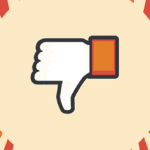 Mysteries
Mysteries  Mysteries
Mysteries  History
History 10 Surprising Stories About the Texas Rangers
 Humans
Humans 10 Philosophers Who Were Driven Mad by Their Own Theories
 Miscellaneous
Miscellaneous 10 Video-Game-Worthy Weapons and Armors from History
 Weird Stuff
Weird Stuff 10 Psychics Who Accurately Predicted Wartime Events
 The Arts
The Arts 10 Pieces of Art Inspired by a Broken Heart
 Health
Health 10 Science Fiction-Sounding New Medical Treatments
 History
History 10 Surprising Facts About the Father of Submarine Warfare
 Space
Space Ten Astonishing New Insights into Alien Worlds
 Weird Stuff
Weird Stuff 10 Bizarre Summer Solstice Rituals Still Practiced Today
 Mysteries
Mysteries Top 10 Haunting Facts About the Ghost Ship MV Alta
 History
History 10 Surprising Stories About the Texas Rangers
 Humans
Humans 10 Philosophers Who Were Driven Mad by Their Own Theories
Who's Behind Listverse?

Jamie Frater
Head Editor
Jamie founded Listverse due to an insatiable desire to share fascinating, obscure, and bizarre facts. He has been a guest speaker on numerous national radio and television stations and is a five time published author.
More About Us Miscellaneous
Miscellaneous 10 Video-Game-Worthy Weapons and Armors from History
 Weird Stuff
Weird Stuff 10 Psychics Who Accurately Predicted Wartime Events
 The Arts
The Arts 10 Pieces of Art Inspired by a Broken Heart
 Health
Health 10 Science Fiction-Sounding New Medical Treatments
 History
History 10 Surprising Facts About the Father of Submarine Warfare
 Space
Space Ten Astonishing New Insights into Alien Worlds
 Weird Stuff
Weird Stuff 10 Bizarre Summer Solstice Rituals Still Practiced Today
Top 10 Ways Society Today Is Like Pre-War Nazi Germany
Whenever a politician says or does something the other side doesn’t like, they are often compared to Adolf Hitler and his National Socialist party. Many online discussions will eventually result in people who lack the cognitive facilities to rationally form an argument calling their debating opponent a Nazi and some countries are even passing laws (or pushing for the same) to remove free speech from those whose views they don’t like by using linguistic sleight of hand and calling it “anti hate speech” legislation.
Calling someone a Nazi or comparing the modern world to the socio-political conditions that precipitated the rise of the Nazi party has somewhat desensitized the world to the horrors of what that word represents.
Still, there are several aspects of modern society that, when examined objectively, show similarities to the Weimar Republic’s collapse and the rise of the socialist Nazi party. This list takes a look at those similarities and examines how history may end up repeating itself if we are not careful.
Top 10 Myths Involving the Nazis
10 A Worldwide Pandemic

When the Great War concluded on November 11th, 1918, the world saw an end to a conflict that resulted in the deaths of 20 million people.[1] That massive number of casualties escalated warfare to new levels, but they paled in comparison to the 1918 Spanish flu pandemic.
That pandemic resulted in the deaths of 20 to 50 million people around the world, though some estimates put the number closer to 100 million. The pandemic is often recalled these days as a comparison to the COVID-19 pandemic that originated in China in early 2020.
There are many similarities between the H1N1 Influenza A viral outbreak of 1918 and the SARS-CoV-2 pandemic that began in 2020. Both pandemics gripped the world, causing millions of infections and millions of deaths. They were both linked to a foreign origin and resulted in targeted xenophobia by various populations.[2]
While the “Chinese virus” is far less deadly than the “Spanish flu” that preceded it by a century, it has severely impacted the way we live and work.[3]
9 Scapegoating Is Alive And Well
The core of Hitler’s ideology was racially built around his belief that the German race, which he called Aryan, was superior to all others. Most conservatives in pre-Nazi Germany didn’t follow his views. Still, they went along with Hitler’s socialist party for all the economic good being promised. As the Nazis rose to power, they did so upon the backs of everyone Hitler believed to be inferior.
This included the Jews, Romani, the disabled, homosexuals, and other communities who weren’t considered pure Germans. The Nazis placed the blame for most of society’s problems on the Jews and enacted policies to strip them of their rights, property, and eventually, their humanness.[4] Scapegoating worked well for the Nazis, and it’s alive and well today.
Fortunately, people aren’t being rounded up in concentration camps like they were in the 1930s, but scapegoating has become a powerful party platform for many worldwide on both sides of the political spectrum in equal measure. Conservatives blame illegal immigration and floods of refugees for the problems of their particular nations while liberals blame conservatives (mostly in the form of white males) for all of their problems.
While many point to the States’ vilification of South American illegal immigrants (deceptively conflated by the media as enmity with all immigrants including legal ones) and foreign refugees, it’s hardly the only country that does this. Scapegoating migrants and immigrants (legal or otherwise) has occurred in various countries during epidemics going back to the Black Death, and it’s been widely used to blame an economic downturn on outsiders in nations across the planet.[5]
8 A Hyperpolarization Of Politics
For most of its history, the United States has featured a somewhat cooperative government. While the bi-party system has resulted in many disagreements, work was still completed, and the nation grew as a result. Unfortunately, the days of compromise are behind us, and the United States has devolved into a hyperpolarization of political ideologies.
This isn’t unique to the United States, and other countries around the world are seeing their political ideologies stand in opposition to one another. This limits government processes, and even more dangerously, it pits two ideological sides against one another, which can become dangerous.
The same happened in pre-Nazi Germany, thanks, in part, to a man named Paul von Hindenburg, the President of Germany. He took a burgeoning democracy and turned it into a dictatorship by ceding control to the chancellor, who built up his side to suit his purposes, and then blew past them when he rose to power. In like manner, the communists were a growing threat and fears were growing that they would perform a socialist revolt similar to the one seen in Russia in which the Tsar and his family were butchered along with all opponents of globalist socialism.[6]
This was made possible by several issues, including the Great Depression. Still, it likely wouldn’t have happened had the German people not been so ideologically divided as they were. The hyperpolarization of politics in 1920s Germany resulted in the degradation of democratic norms, making it possible for the Nazis to take over.[7]
7 A Rise In Sexual Liberty & Gay Rights In The 1920s And 2020s
In 1929, Germany had a serious movement to repeal anti-gay legislation known as “Paragraph 175,” which criminalized homosexuality. It was repealed in 1994, but it nearly happened 65 years earlier, before the Nazis rose to power.
Germany (and much of Europe) was on the cusp of liberating its gay (and transsexual and transvestite) citizens. As a result, the country was filled with gay bars and cafes. Gay people were more open and out at the time, and the movement had a strong chance of doing away with anti-gay legislation.[8]
The Nazis’ rise to power and put a stop to all of that. They didn’t just keep the law in place — they rounded up and imprisoned anyone they believed to be members of the gay community. Those days are behind us in most parts of the world, but there is a correlation between the rise of gay openness in 1920s Germany and today.
Modern society has seen a great many changes made in the gay rights movement. Gay marriage is now legal in many nations, and previous prohibitions placed on homosexuals have been lifted.
6 Ruined Economies Foster Resentment
When WWI came to an end, Germany was left in ruins. The country was not only in need of rebuilding, but its economy was in shambles. Additionally, it was forced to pay hefty reparations to France and other countries on the winning side of the conflict and had large swathes of productive land confiscated.[9]
The Nazis used the economic disaster and the Great Depression to their benefit. They developed a protectionist economic policy that promised to boost the German people from the ruinous post-war economy.
It worked by amassing a large population of people to their side with the promise of jobs, money which wasn’t hyper-inflated by the central bank, and a better tomorrow. Global economies are different today than in the early 20th century, but there are still many parallels.
The world saw a bank-caused Great Recession from 2007 until 2009, which saw many Americans lose their homes.[10] The Great Recession did a number on the economy in the States, but it didn’t just impact the U.S., as nations worldwide suffered severe economic disasters. Greece underwent a government-debt crisis from 2009 until 2018, nearly destroying the country’s economy.
5 Widespread Distrust In The Media
When Donald Trump began his campaign for President of the United States, he wasn’t shy about calling out various news and media organizations as fake news. Trust in the media plummeted during his presidency. Even after leaving office, his claims of fake news persist primarily regarding the majority left-wing news outfits like CNN, the New York Times, and most others.
Hitler never used the phrase “fake news”, but he certainly adopted one that was similar. Lügenpresse is German for “lying press,” and it’s perfectly analogous to “fake news.” The term goes back centuries and the Marxists used it to refer to the media when they wrote damning articles about communism and socialism. Hitler often called the media out for lying and manipulating the truth by using the same term.
Widespread distrust in the media was prevalent in pre-Nazi Germany, and it’s prevalent now. When people lose faith in the integrity of the news media, they become susceptible to manipulation and influence from other spheres. That worked well in the 1920s and ‘30s for Hitler and his national socialist party and it works well now for those controlling the new means of news dissemination: social media and tech giants.[11][12]
4 Socialist Globalism Is Back and So Is Socialist Nationalism
The Nazi Party was one thing above all else — it was a nationalist movement (extreme patriotism). It arose in Munich after WWI when people upset over the Treaty of Versailles met to discuss their political views. A trend toward socialist nationalism developed to combat the globalist principles of the burgeoning German Communist movement (as seen in the attempted coup of the 1919 Spartacist uprising), and the National Socialist German Worker’s Party (NSDAP) was established in 1920.
National Socialism helped bring the Nazis to power, as it focused the people’s attention on their own national needs. It placed German workers above other communities and found scapegoats for the nation’s problems in the Jews, immigrants, and other “undesirable” members of society.[13]
In the United States, the Republican party ran in the 2016 election with the phrase, “Make America Great Again,” which was further developed into an ideology that put “America First.” American neo-nationalism similarly prioritizes the country above others (much to the chagrin of the globalist movement again rising under the new brand of “Democratic” socialism). As has happened previously in the States, illegal-immigrants were blamed for the country’s problems.
America was hardly alone in moving back towards nationalism in the 21st century. It’s also making a comeback in Europe, with Hungary, Austria, Switzerland, Denmark, Belgium, Estonia, Germany, Italy, and others seeing a rise in Nationalist movements in their recent parliamentary elections.[14]
3 Propaganda Has Taken Over Social Media For Millions Of People
The Nazi use of propaganda is one of the most successful tools employed by Hitler and Goebbels. Leading up to the party’s rise and well through its established dominance in Germany, propaganda stood as the most important weapon available to the Nazis.
Propaganda helped convince the German people that their political opponents and the Jews were responsible for all their troubles. It helped convince the people that their only salvation was the election of Adolf Hitler, and it kept the people in check when the government turned on those same people who put them into power.
Propaganda was a psychological operation of masterful deceit, and it has a modern comparison in social media. Social media platforms have given a voice to every person on the planet, and while some choose to speak out (at the risk of being “cancelled” or silenced), many more listen closely to what they’re told.
Propaganda spread through social media has impacted and influenced millions of people into believing all manner of bizarre things. Through sites like Facebook, Twitter, instagram, and others, people have been roped into believing all kinds of novel or crazy ideas, including many promoted at the time of the Nazis in the 1920s and early ’30s.[15][16]
2 An American “Insurrection”
As the 2020 U.S. Presidential Election got closer and closer, the country appeared to be on a tipping point. The people were voting in what was often cited as “the most important election in history” by folks on both sides. More people voted in the election than at any other point in American history.[17]
The result saw Joe Biden defeat the incumbent, Donald Trump, but it didn’t end there. Court challenges and claims of a stolen election ultimately reached a boiling point that saw thousands of people amass on the U.S. Capitol Building in protest.[18]
The January 6th event was one of the most shocking developments in recent U.S. history, and it has a historical comparison to pre-Nazi Germany. In 1923, Adolf Hitler and other leaders in the Nazi party attempted a coup d’état in Munich. The “Beer Hall Putsch” resulted in 20 deaths and landed Hitler in prison for treason.[19]
The U.S. protest wasn’t an attempted coup. Still, it does share similarities with the overall sentiment expressed by the Nazis of the 1920s. Specifically, a belief that dark forces betrayed the people, and the only recourse was a confrontation. The Nazis weren’t successful in ’23, but a decade later, they rose to power.
1 Growing Worldwide Instability
Before the Nazis rose to power, the Weimar Republic was in disarray. This was primarily due to the end of the Great War, but the Great Depression that followed didn’t help. In fact, the majority of the countries in the world were subjected to instability. New borders were drawn throughout Africa, Europe, and Asia, which caused many problems.
While Germany was only one nation among many dealing with these problems, it was right at the center of them, thanks to its participation in the war. Over time, resentment and further global instability helped the Nazis rise to power, resulting in even more instability with the global outcry from the peaceful annexation of Austria (known as the Anschluss or War Of Flowers due to the German military being greeted by cheering Austrians who showered them with flowers, a scene repeated during World War II during which Ukrainian peasants saw the Germans as their liberators from the horrors of socialism under the Soviet government), which was followed by German demands for the return of territorial losses resulting from the Versailles Treaty and, later, territory over which Germany had no legitimate claim.[20]
The world is a complicated place filled with numerous governments, economies, and ideologies, so it’s always in a state of relative instability. Still, it’s been a lot more unstable since the 21st century began with the 9/11 attacks. The global fight against Islamic terrorism has destabilized the Middle East and caused problems around the world.
Russia’s annexation of Crimea and the ongoing war in Ukraine are further indications of international instability comparable to pre-Nazi Germany in the 1920s and early ’30s.[21] If these situations continue to devolve, the world may find itself in similar circumstances that precipitated the Nazi’s rise to power.
One thing is for sure, digital book burnings, cancel culture, and the abolition of free speech are not the answer to the problems of today.
Top 10 Plans Hitler Would Have Put In Motion If The Nazis Had Won








